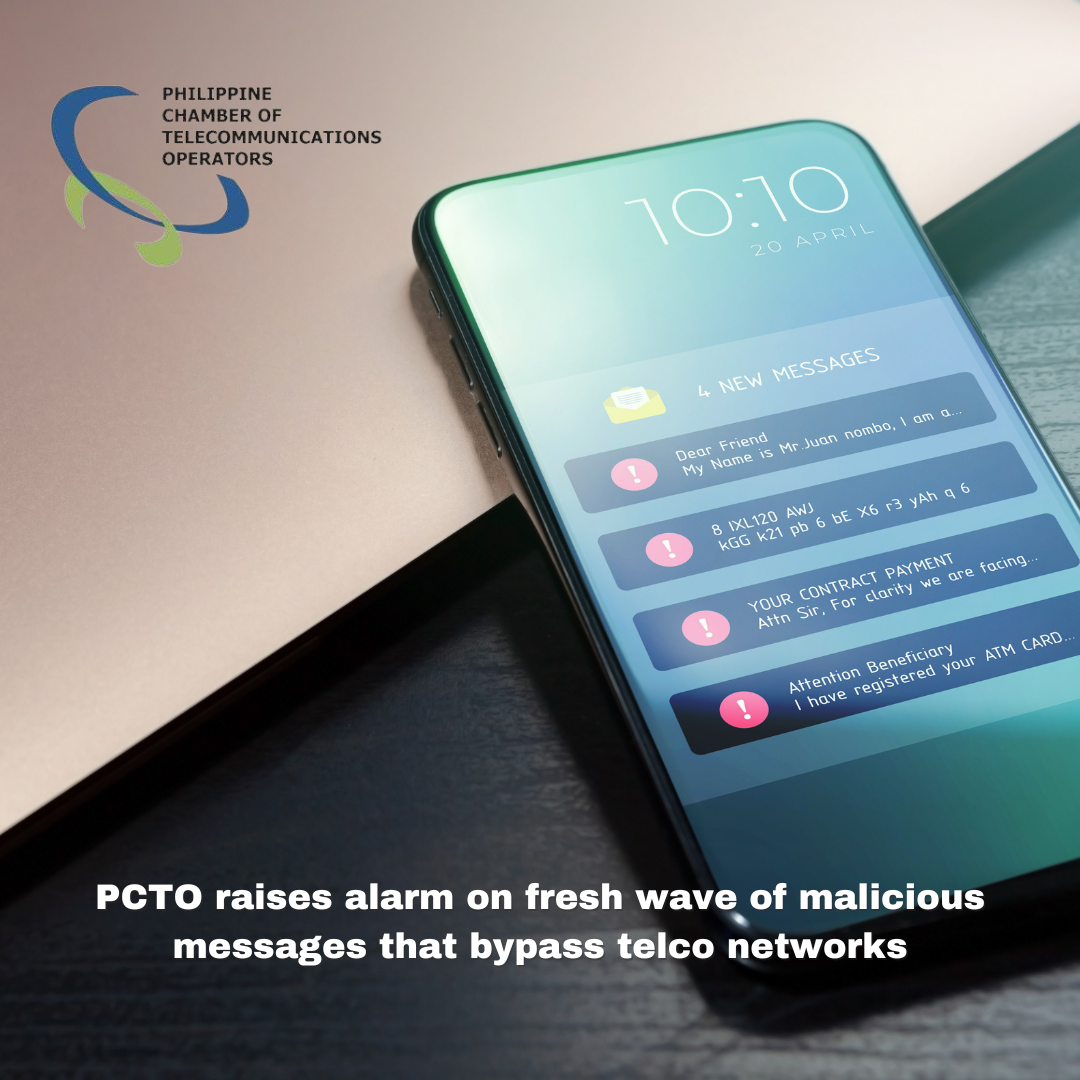The Philippine Chamber of Telecommunications Operators #PCTO has expressed concerns over a new wave of scam messages targeting mobile users outside of telco networks.
PCTO has called for increased collaboration among industry players, relevant government agencies, and stakeholders to effectively tackle these emerging fraudulent methods.
“This new wave of scam messages is alarming as fraudsters have resorted to methods that bypass telco networks, thus evading our robust filters,” said Atty. Froilan Castelo, PCTO President and Globe General Counsel.
“Industry players and key stakeholders need to collaborate closely to combat this trend. Our focus should be on finding ways to defeat our common enemy: scammers,” he added.
Off-Network Scam Messages
Castelo noted a significant increase in malicious messages sent through methods outside the cellular network. This trend emerged as telcos implemented stringent security measures against scam and spam SMS. Specifically, Globe began blocking all person-to-person SMS with links in September 2022 and later restricted app-to-person SMS.
Methods that bypass telco networks include the use of over-the-top media services or chat apps, Rich Communication Services (RCS) chats for Android users, and other internet-based messaging platforms.
Fraudsters can send messages to target users even while using foreign mobile numbers through these means.
Another ongoing issue is the use of International Mobile Subscriber Identity (IMSI) catchers or fake cell towers to target mobile users within a certain area.
These portable devices mimic cell towers to intercept mobile communications within a specific area, allowing fraudsters to directly connect with SIMs and send them messages using imitated sender IDs, including official accounts. This method, known as spoofing, also bypasses telco networks.
Spoofing is particularly challenging for mobile users to detect as it allows fraudsters to send out SMS that appear to be official advisories from reputable sources, directing victims to malicious online pages through embedded clickable links.
To combat this, telcos like Globe earlier stopped using clickable links in its official customer advisories and also issued several reminders to customers to remain vigilant amid this rising scam trend.
Industry players are working with authorities to find a solution to spoofing, including cutting off the source by preventing the importation of spoofing devices.
PCTO has reiterated its call for vigilance against fraud, urging the public to never engage with unsolicited messages received via any platform.
“At the end of the day, the first line of defense for mobile users is themselves. Be vigilant and discerning against messages from unknown numbers, and never click on any link inside unsolicited messages. More often than not, these messages are intended to defraud you,” Castelo advised.
To learn more about PCTO’s efforts, please visit their Facebook page.
FAQs
-
What is PCTO’s concern? PCTO has expressed concerns over a new wave of scam messages targeting mobile users outside of telco networks.
-
What are off-network scam messages? Off-network scam messages are malicious messages sent through methods outside the cellular network. These methods include the use of over-the-top media services or chat apps, Rich Communication Services (RCS) chats for Android users, and other internet-based messaging platforms.
-
What is spoofing? Spoofing is a method where fraudsters use International Mobile Subscriber Identity (IMSI) catchers or fake cell towers to intercept mobile communications within a specific area, allowing them to directly connect with SIMs and send them messages using imitated sender IDs, including official accounts.
-
What is PCTO’s advice to mobile users? PCTO advises mobile users to be vigilant and discerning against messages from unknown numbers, and never click on any link inside unsolicited messages. More often than not, these messages are intended to defraud you.
-
Where can I learn more about PCTO’s efforts? You can learn more about PCTO’s efforts on their Facebook page.
